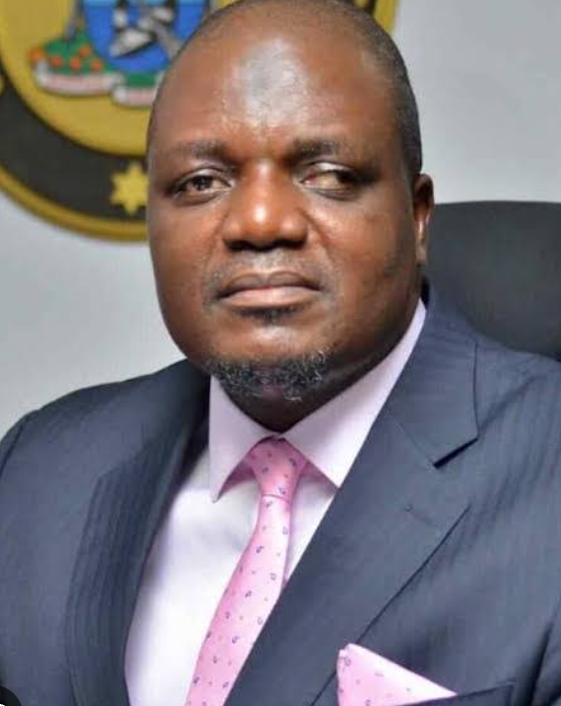The new chairman of the Nigerian Deposit Insurance Corporation(NDIC), Alhaji Abdulhakim Abdulateef on Monday exposed the high rate of corruption in the regulatory agency, even as vested interests are scheming to oust him before his tenure begins.
In a recorded video, Alhaji Abdulateef stated that vested interests in the corporation under the new Act has declared as insolvent pro people finance companies, strip them of their assets and divert such assets for their own use to the detriment of depositors who will never be able to get their deposits back. “I have more than 1000 petitions on my table and I am going to expose them all”, he said.
You can watch the video here:
Meanwhile, there are attempts to declare his appointment by former President Muhammadu Buhari as illegal because he(Buhari) repealed the NDIC Act(2006) under which his appointment was made and promulgated into law NDIC Act(2023) which made no provision for an outsider to be so appointed as Chairman.
According to PRNigeria, news platform, disclosed that in the month May, 2023, “several actions were taken including the confirmation of appointment, swearing in and and a new law that repealed such an appointment of a chairman from outside the public service”.
The NDIC board chairman, Dr Abdul Hakeem Abdulateef was appointed by President Buhari alongside six other board members on January 9, 2023 who sent their names to the Senate on the 22nd of March and their appointments were confirmed by the lawmakers on May 9. He is not only a popular Islamic cleric, he was a former legislator and commissioner in Lagos State.
The board members include Professor Osita Ogbu to represent South East, Umar Gambo Jibrin (North Central), Mohammed Attahiru Haruna (North East), Yasmine Zaabatt Amin Dalhatu (North West), Simon Ogie (South-South) and Abimbola Olashore (South West).
The Chairman and other Board members were therefore sworn-in by the then Minister of Finance, Budget and National Planning, Zainab Ahmed, on Thursday, May 25.
Surprisingly, the then President Buhari who was accused of taking a lot of controversial decisions in the last days of his reign had on May 26 signed into law the Nigeria Deposit Insurance Corporation Bill, 2023. It was an act of the National Assembly which repealed the NDIC Act No.16 of 2006 and enacted the NDIC Act of 2023.
The amendment bill was passed by the Senate on the 28th of March, 2023 and by the House of Representatives on the 2nd of May, 2023.
PRNigeria observes that the second schedule of the amendment law which was signed by President Buhari on May 26, 2023 and immediately gazetted, only the the Permanent Secretary in the Ministry of Finance can chair the governing board of the NDIC.
The law provides as follows: “The governing body of the Corporation shall be a Board of Directors (in this Act referred to as “the Board”).(2) The Board shall consist of—(a) the Chairman who shall be the Permanent Secretary of the Federal Ministry responsible for finance; (b) the Managing Director; (c) two Executive Directors; (d) one representative of the Central Bank of Nigeria who shall be the Director of Banking Supervision; and (e) the Director-General of the Securities and Exchange Commission.”
Barely two weeks after the exit of President Buhari, some stakeholders are calling on President Bola Ahmed Tinubu to undo the appointment, saying it is illegal.
The agitators are saying that President Buhari himself signed an amendment to the NDIC establishment law which repealed and rendered the appointment unlawful.
One of the stakeholders in the financial sector of the public service who doesn’t want his name mentioned told PRNigeria that the NDIC has already commenced the implementation of the new Act.
He said “The NDIC Board of Directors which was inaugurated on the 25th of May, 2023 were nominated under the provisions of the NDIC Act, 2006; which was subsequently repealed and reenacted as the new NDIC Act, 2023 on the 26th of May, 2023 by Mr. President. The new Act has clear guidelines and requirements for the composition and membership of the Board which is at variance with those contained in the old act. None of the independent members of the Board inaugurated on the 25th of May qualifies for membership under the new NDIC Act, 2023, which has already been gazetted.”
Lawyers are however arguing that it is fundamental in the profession for laws and rules not to have retroactive effect.
An Abuja based constitutional lawyer, Yunus AbdulSalam argued that since the bill was signed into law on May 26 and the appointments were approved by the Senate on May 9, the appointments are valid.
Abdulsalam said: “The newly amended Act can only operate in future as it cannot nullify or annul an appointment made under the law before the amendment of the NDIC ACT. This is in consonance with section 6 (1) (c) of the Interpretation Act which provides that the repeal of an enactment shall not “affect any right, privilege, obligation or liability accrued or incurred under the enactment.”
The new chairman however in the recorded video insisted that his tenure and that of his board is not under threat. He also called on President Bola Ahmed Tinubu to probe the passage of the new NDIC Act 2023, particularly section 7 of the new law that takes away the rights and the two representatives of the Federal Ministry of Finance and replaced them with two Directors of the Central Bank of Nigeria (CBN). He insisted that the law that was passed by the National Assembly is fundamentally different from the one President Buhari assented to. “President Tinubu should probe what happened between the time the national assembly passed the act and the time President Buhari assented to it”.
Dear readers, we really need your support to keep on serving you with authoritative, truthful, and juicy stories everyday. For your support, please reach out to the editor @gavelinternational66@gmail.com

